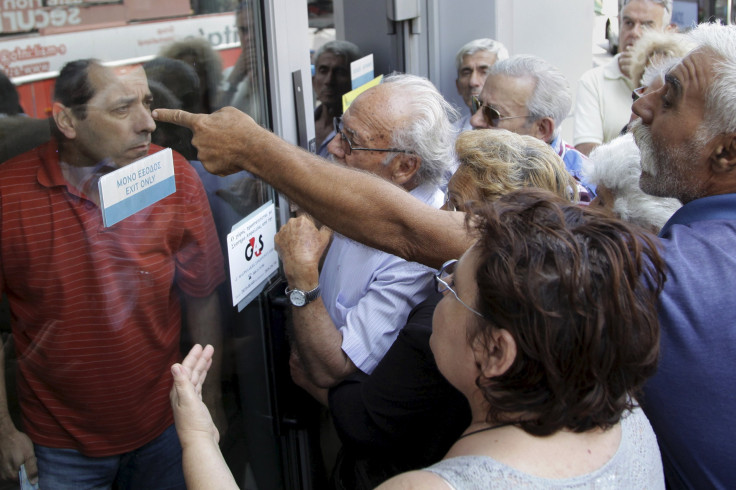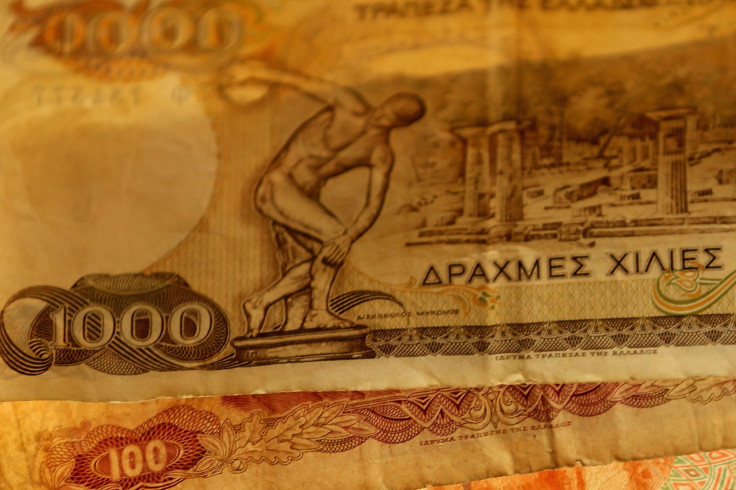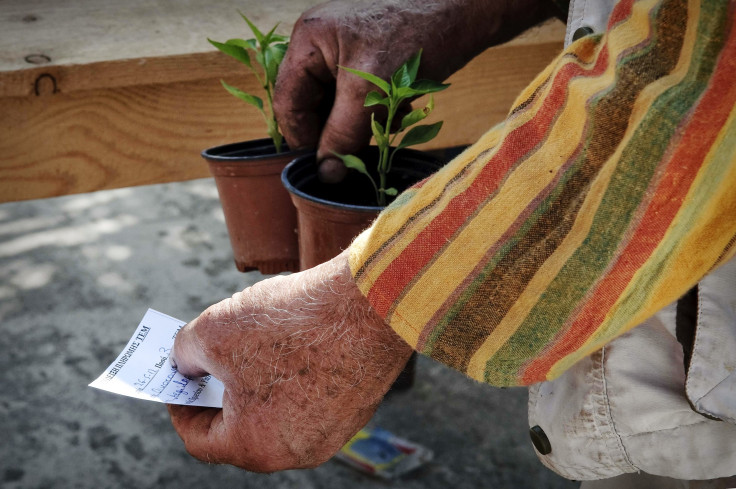Greek Debt Crisis: What Currency Will Greeks Use If Greece Leaves The Eurozone?

In the Athens suburb of Holargos sits a printing press that produced Greece’s old currency, the drachma, before the country joined the eurozone in 2001. It was then, said freshly resigned finance minister Yanis Varoufakis in a recent interview, that Greece marked its acceptance into the European currency union by smashing its printing presses -- all but this one.
Now the facility, which prints 10-euro notes, has returned to the public eye. Greek banks are running short of money, having nearly expended emergency funds from the European Central Bank. With backup options drying up, the prospect of printing drachmas has become real again.
If Greece and its creditors fail to come to accords over its debt obligations in the coming days and weeks, the country may find itself exiting the eurozone and returning to some kind of sovereign currency. Though it’s impossible to predict exactly what that would entail, economists say the transition would involve a lot of pain.
But with innovative new money systems waiting in the wings -- such as the community currency used in the town of Volos -- some see glimmers of promise.
The Drachma Returns
According to Eduardo Levy-Yeyati, Professor of Economics at Universidad Di Tella in Buenos Aires, Argentina, history provides little guidance for Greece. “There are no relevant precedents,” he wrote in an email.
Bank analysts saw Sunday’s referendum -- in which Greek voters decisively rejected creditors’ demands for further austerity -- as a firm step toward a Grexit. Last week, the head of the European Parliament, Martin Schulz, said that Greece would be wise to prepare an alternative currency if its citizens voted the way they did.
Syriza, Greece’s left-wing ruling party, has reportedly drawn up emergency plans to revive the drachma if negotiations with the eurozone fail.

A Greek exit from the euro, or Grexit, would be far from simple. Facing a sudden dearth of legal tender, the Greek government would likely have to issue IOUs or exchangeable tax credits to keep the gears of commerce turning. In the immediate term, simply finding a way to print and distribute the de facto currency would prove a major challenge.
Logistics aside, however, the moment the new notes made it into the hands of residents in Crete and Athens, their value would begin to decline. As inflation took hold, the currency would immediately lose buying power against the euro.
The result, according to Levy-Yeyati: would be “deleterious immediate effects on economic activity and income distribution.”
If the government opted to nationalize the banks and replace the “€” next to each deposit with a new symbol, middle-class savers could see their nest eggs collapse as the new currency nose-dives. Inflation and capital flight could lead to mass layoffs and social unrest.
But devaluation could help Greece to a certain extent. If Greece let its currency fall against the euro and U.S. dollar, it would effectively reduce outstanding debts. Argentina did just this in the depths of its economic crisis in 2002, when it dropped its unsustainable 1-to-1 peg with the dollar and let the peso plunge. In the years following -- and after substantial social upheaval -- the country saw an economic renaissance.
But Levy-Yeyati, who has worked for the World Bank and International Monetary Fund, cautions that Argentina is no simple object lesson for the Greeks. Greece has a weaker export economy and a debt-to-GDP ratio three times greater than Argentina’s in 2001, conditions that make a transition look especially painful. “The facile Argentine analogy of the Greek is misleading.”
The Volos Model
But the crisis could present new opportunities. From Bitcoin to barter, the impending loss of the euro has Greeks looking for unorthodox solutions that operate largely outside the banking system.
Leander Bindewald, a senior researcher at the New Economics Foundation, draws inspiration from the industrial Greek city of Volos, which in 2011 established a barter-like system of local alternative units -- known as TEMs in Greek. With euros in short supply, residents traded their skills -- electrical work, plumbing, teaching -- for TEMs, which could be traded for, say, food from a local grocer. Similar systems have sprung up throughout Greece in recent years.
“These are a lifeboat for people in their daily lives,” says Bindewald, who manages the international group Community Currencies in Action, which consults communities on setting up local monetary networks.

To Bindewald, the economic inefficiencies that might arise from a patchwork of local currencies and barter systems are worth it, considering the cataclysmic dangers that monetary systems like the eurozone present. “If you have only one currency and it fails, people are hungry and starving on the street because there is no backup.”
But these piecemeal local efforts hardly represent a lifeboat large enough to fit all of Greece. “They are a bridge for the people on the ground, but you would have to replicate them on a massive scale,” Bindewald says.
Moreover, Greece’s creditors would hardly be satisfied by such an arrangement. “One little group in Volos doesn’t do anything for the national economy.”
© Copyright IBTimes 2024. All rights reserved.












